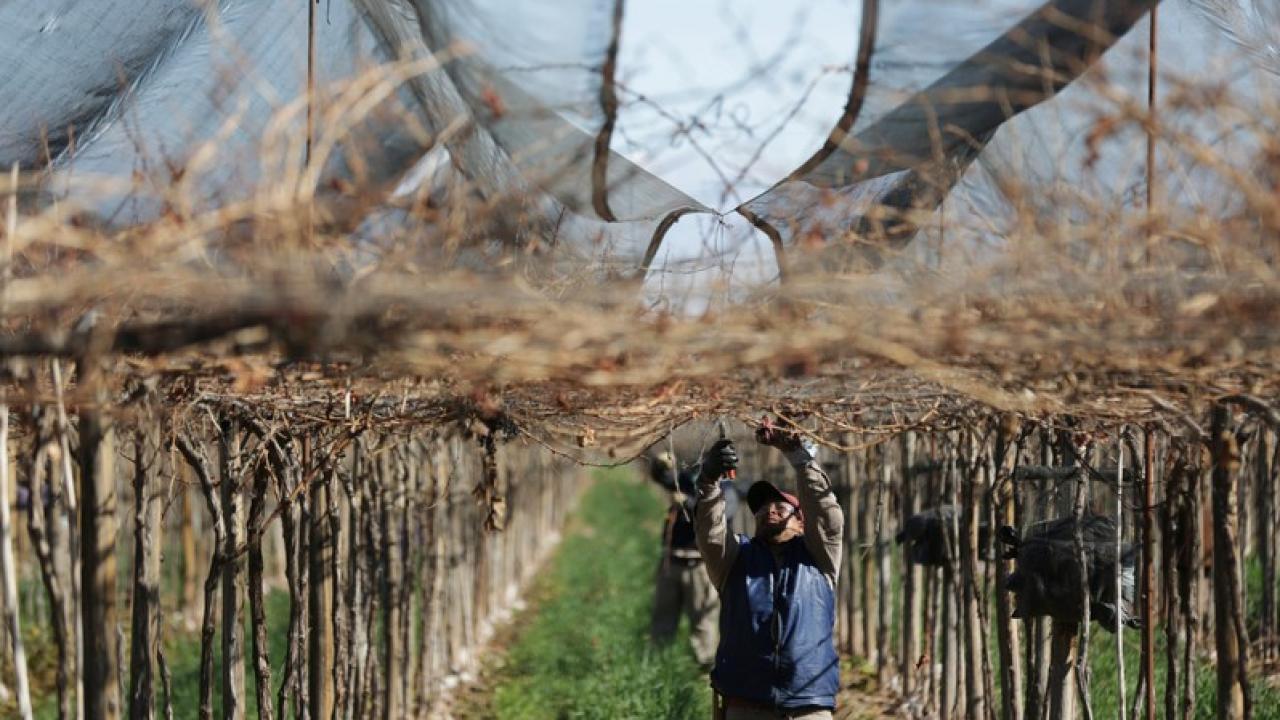
The combination of low international prices and the exchange rate delay causes them to delay the sale of their production.
In the booming agricultural area of Buenos Aires, silos overflow at the end of the agricultural harvest. Producers in Argentina are delaying sales while waiting for the ultra-liberal president Javier Milei, to whom they gave their vote, to eliminate taxes and exchange obstacles.
In Argentina, the silos are full
"The silos are full, just enough is sold to cover expenses. Those who can, wait," Ricardo Semino, a farmer from Lobos, 110 km southwest of Buenos Aires, in the rich humid pampas, dedicated to finishing the harvest, described to AFP. of corn and sow wheat.
The latest estimate from the Rosario Stock Exchange predicts that the grain harvest will report 131.1 million tons, compared to 82.2 million in the previous one, decimated by a historic drought.
But the combination of low international prices and the exchange rate delay, according to farmers, causes them to delay the sale of their production, which conspires for the president to see the fruits of the first harvest under his government.
Argentina, known as the breadbasket of the world, is the third largest producer of soybeans behind the United States and Brazil.
It exports 70% of its agroindustrial production, which represented 55% of Argentine exports in 2023, a volume that means significant tax revenue for the State.
This year it is estimated that it will export US$29.3 billion, far from the average of US$32.0 billion in the last five campaigns.
"Although the production volume increased by 60% year-on-year (over the last harvest), the value of agricultural exports rose by less than half, 23%," explained the Rosario Stock Exchange.
Speculation
In the open field, tons of soybeans and cereals are accumulated in 'silobags', a system for storing grains and forage wrapped in plastic.
"You speculate when you send grains to the silo plant. Nowadays they are large and they give you the possibility of delivering the cereal and selling in five, six, seven months or even a year," Semino explained.
A report from the Rosario Stock Exchange estimated that there are some 35.6 million tons of unsold grains for almost US$10.6 billion, vital for the government urgently needed to reinforce monetary reserves.
The Buenos Aires Grain Exchange reported on its side that in May, although the pace improved compared to April, almost 38% fewer exports were settled compared to the same month in 2023.
The agricultural sector supported Milei in the 2023 presidential elections, confident in a speech that promised "a field free of withholdings", as the tax whose repeal has been demanding for years is known.
But as soon as he took office, the new president raised them from 31% to 33% for exports of soybean meal and oil.
He also promised to eliminate regulations in the exchange market, the source of distortions due to multiple exchange rates and an informal market under the influence of which internal prices rise. Inflation, although downward, was 280% year-on-year in May.
The situation disrupts farm costs, producers say. In the last year "a tractor went from being worth US$170,000 to US$250,000," according to Semino.
After six months of government, Milei did not advance with his promises to the countryside and on the contrary increased several taxes, including fuel.
Input prices rise at the rate of the informal dollar (around 1,300 pesos), but grains are exported at a special price for the countryside, slightly above the official exchange rate, around 945 pesos.
"All this complicates a lot, the ideal would be for us to have a unified dollar," said Semino.
Despite the recession, support for the government prevails. "This government devalued in December (52%), that favored us. Now expectations are good, we are waiting for there to be a single exchange rate," confided the farmer.
Both the president and his Minister of Economy, Luis Caputo, ruled out a new devaluation and refused to set deadlines for the normalization of the exchange market.
"The field does not stop"
Economic uncertainty does not prevent the field from renewing projections.
The rains boosted the sowing of wheat, which promises to yield 40% more next season, "around 20 million tons," Cristian Russo, head of estimates at the Rosario Stock Exchange, told AFP.
The agricultural sector "does not stop" even if the policies do not support it, Semino explained.
"One is always used to continuing, no one is going to leave a plot because another government is waiting, you have to plant it and get the most out of it," he concluded.









